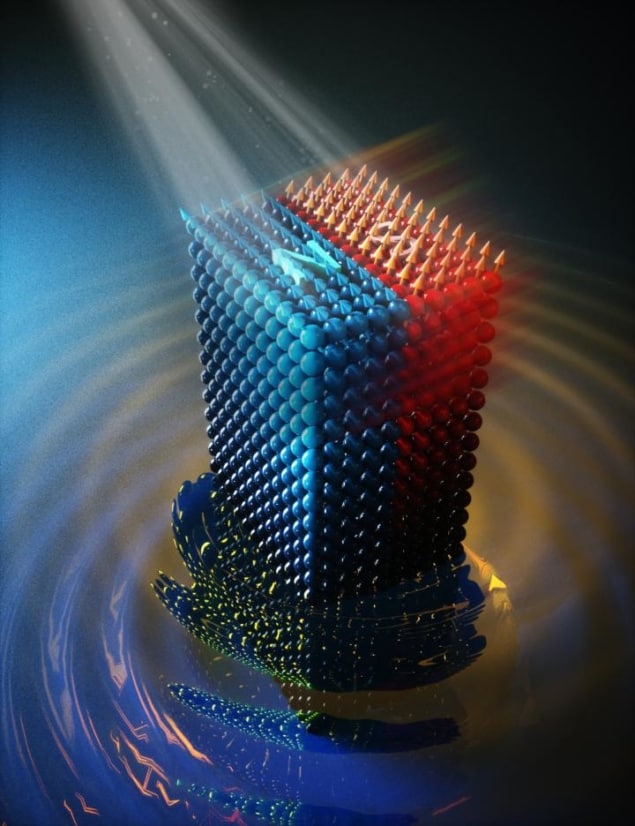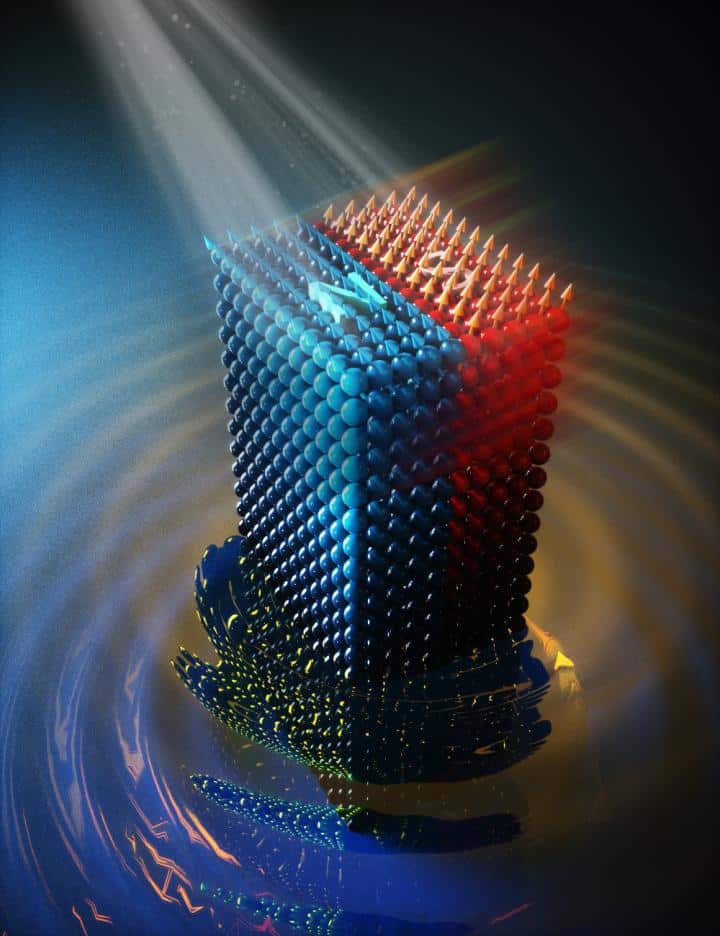
Intense laser pulses can turn an antiferromagnetic material into a ferromagnetic one within just a few picoseconds (10-12 s) – a time scale that matches the fundamental limit for magnetization switching and vastly exceeds the recording speeds of today’s computer hard drives. The technique, which works by optically “shaking” the crystal lattice of dysprosium orthoferrite (DyFeO3), could form the basis of a fast and energy-efficient new way of processing data.
Modern hard disk drives encode data by using magnetic field pulses to flip the spins of electrons (representing binary zeros and ones) in ferromagnetic materials within the disk. Because these magnetic pulses require a substantial electrical current, the data-writing process dissipates significant amounts of energy. It is also relatively slow, with a complete spin flip taking tens of nanoseconds (1 ns = 10-9 s).
Antiferromagnets like DyFeO3 are considered promising candidates for future high-density memory applications because their spins flip much faster, with characteristic frequencies in the terahertz range. These rapid spin flips are possible because the electron spins in DyFeO3 are aligned antiparallel to each other – meaning that the material (unlike ferromagnets, which have parallel electron spins) lacks a net magnetization. The spins in antiferromagnets are also robust to external magnetic perturbations, making them a stable platform for data storage.
Controlling the exchange interaction
Researchers led by Andrea Caviglia of the Delft University of Technology in the Netherlands have now put these properties to work by showing that intense (> 10 MV cm–1) mid-infrared laser pulses just 250 femtoseconds (1 fs =10-15 s) long can switch the spins in DyFeO3 in less than 5 picoseconds. The mechanism for this switch lies in the interaction between an electron’s spin (roughly, its rotation on its own axis) and its orbital momentum, which stems from the electron’s movement around the atomic nucleus and is related to the shape of the material’s electronic orbital.
In DyFeO3, the spin of the transition-metal (Fe) ion and the orbital momentum of the rare-earth (Dy) ion are strongly coupled via a mechanism known as an exchange interaction. This quantum interaction occurs between pairs of identical fermions (such as electrons), and it tends to prevent the spin magnetic moments of neighbouring fermions from pointing in the same direction.

Ferrimagnets speed up racetrack memories
Caviglia and colleagues, however, found that the intense laser pulses essentially “shook up” the lattice of DyFeO3, producing ultrafast and long-lasting changes in the exchange interaction. These changes made it possible for the material to undergo a phase transition, switching from an antiferromagnet to a ferromagnet.
Ultrafast lattice control
The researchers, who report their work in Nature Materials, say that it was previously thought that phonons (that is, vibrations) could only change a material’s magnetism on a timescale of nanoseconds. “We have reduced the magnetic switching time by a 1000, which is a major milestone in itself,” says team member Rostislav Mikhaylovskiy of Lancaster University in the UK.
The researchers hope that their findings will encourage further research into the exact mechanisms governing ultrafast lattice control of magnetic states. They now plan to optically stimulate other phonon modes in DyFeO3. “These modes often feature a symmetry that is different to the one we have already addressed and thus might have a fundamentally distinctive impact on the magnetic state of the antiferromagnet,” study lead author Dmytro Afanasiev tells Physics World. “Who knows what kind of novel scenarios for light-driven magnetic recording they may provide.”
